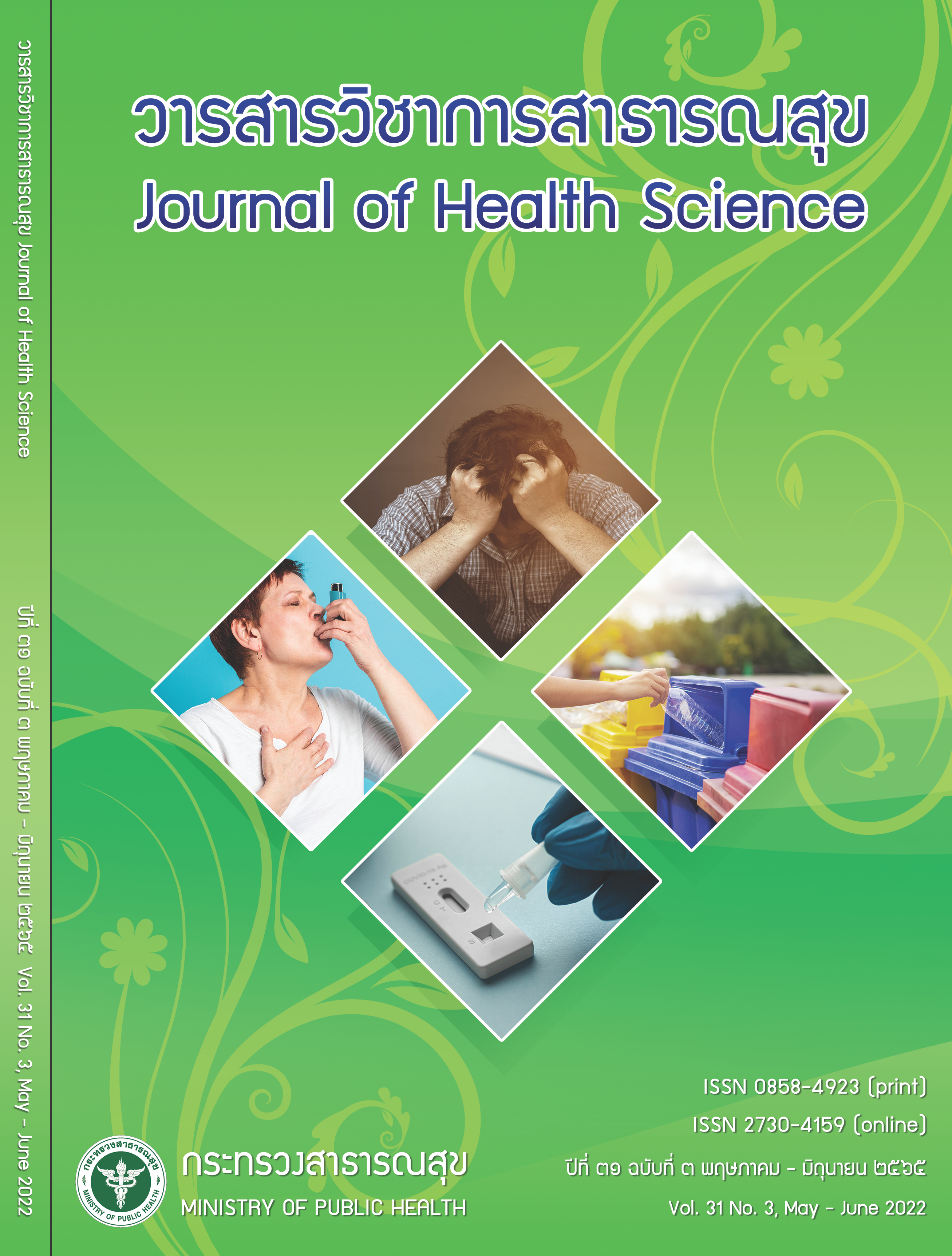Nursing Model Development of the Patients Acquiring Symptoms after Recovering from COVID-19 with Self-Management
Keywords:
model development, nursing care of patients acquiring symptoms after recovering from COVID-19, self-managementAbstract
The objective of this study was to develop and evaluate the outcomes of a nursing model for the patients acquiring symptoms after recovering from COVID-19 with self-management and make a policy proposal. The research was conducted in 3 phases: (1) situational study, (2) model development and testing, and (3) evaluation of the results. The samples consisted of (1) 40 nursing administrators and professional nurses; and (2) 100 patients acquiring symptoms after recovering from COVID-19. Research instruments consisted of 2 two parts: (1) nursing courses to promote self-management of the patients and their caregivers, and (2) nursing care model for patients acquiring symptoms after recovering from COVID-19 with self-management. Data collecting tools composed of 8 sections: (1) situational survey; (2) questionnaire on opinion towards the model; (3) knowledge test of nursing care of post COVID-19. The content validity of the 3 aforementioned tools were assessed by 3 experts and their IOC values were 0.88, 0.88 and 0.80 respectively; (4) self-efficacy record form; (5) self-efficacy questionnaire; (6) the model evaluation form; (7) satisfaction questionnaire; and (8) patient satisfaction questionnaire. Cronbach alpha co-efficient of the 6th, 7th and 8th questionnaires were 0.98, 0.97 and 0.95, respectively. Data were analyzed using frequency, percentage, mean, standard deviation, and t-test. The results revealed that the model consisted of 2 components: (1) nursing service mechanism, and (2) self-management of the patients. The models implementation composed of 2 parts: the nurses and the patients. The nurses had knowledge score higher than before the implementation (p<0.05). The model was appropriate and could apply to practice at 82.05%; and the nurses were satisfied with the model at the highest level (mean=4.53, SD=1.34). The patient knew their competency; had ability to manage their health, and their satisfaction was at the highest level (mean=8.82, SD=1.35). Policy proposal to the Ministry of Public Health included a requirement for all hospitals to develop a nursing model for the patients who continue to have symptoms after recovering from COVID-19, by encouraging the patients to practice self-management to overcome their symptoms, thereby preventing chronic illnesses. In addition, the Nursing Division should initiate the policy to develop the nurses’ competency in managing nursing system for the patients with sustainable symptoms after recovering from COVID-19.
Downloads
Downloads
Published
How to Cite
Issue
Section
License

This work is licensed under a Creative Commons Attribution-NonCommercial-NoDerivatives 4.0 International License.







